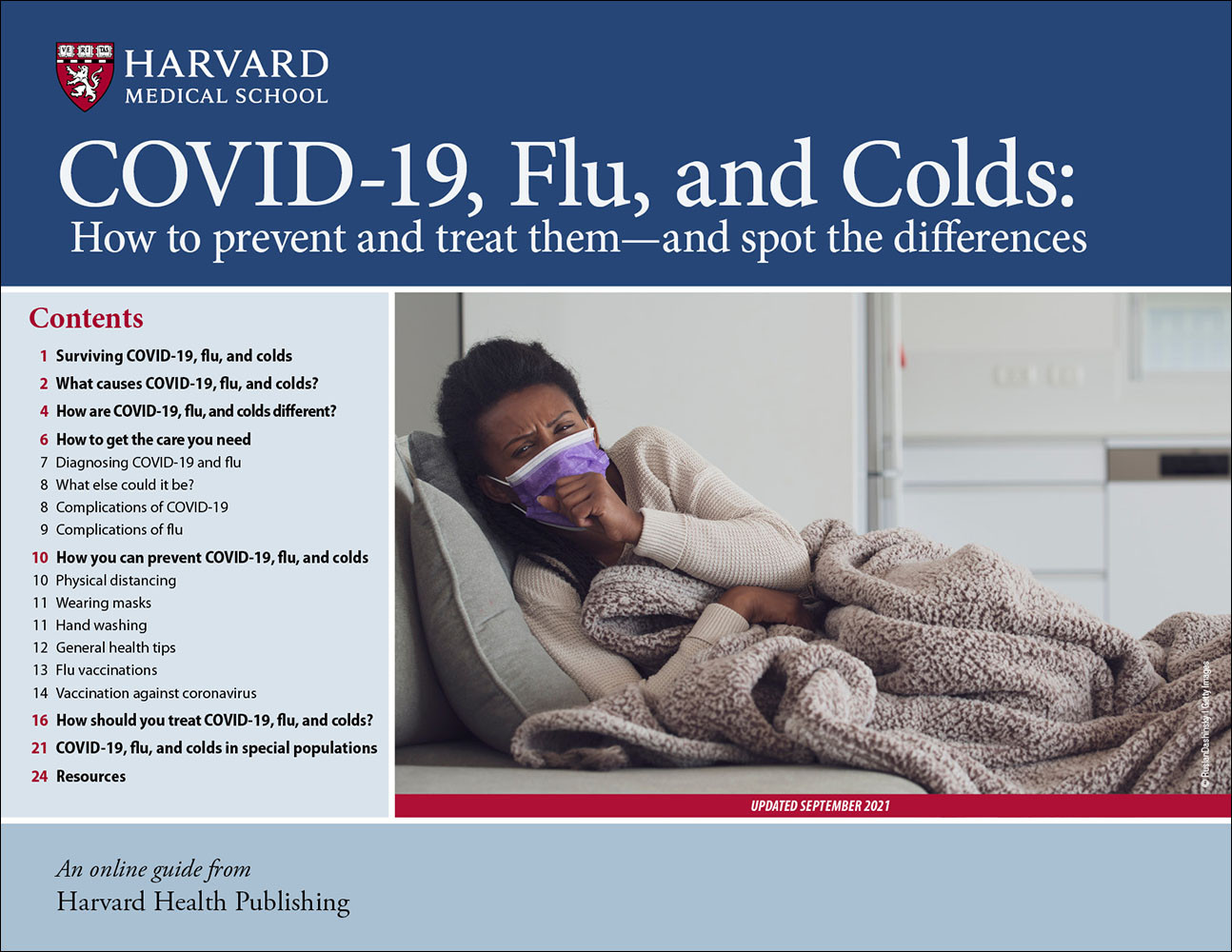How can I avoid long COVID?
Ask the doctor

Q. I was pretty sick with COVID-19 but have improved somewhat. Now I'm worried about getting long COVID. How serious is long COVID, and what can I do to avoid it?
A. Some people who "recover" from COVID-19 unfortunately suffer persisting symptoms — such as fatigue, difficulty concentrating, and disrupted sleep — that seriously impair their ability to function at work and at home. This illness is called long COVID. While it is more likely to develop in people who were most severely ill when they first caught the virus, it also can occur in people who were only mildly affected. Initially, some people (including some doctors) suspected that such persisting illness was due purely to psychological problems or even that the patients might be faking their illness.
Three years later, it is clear that tens of millions of people are affected by long COVID. Senior Harvard economists have estimated that the cost to the United States of caring for post-COVID illnesses may be as much as $3.7 trillion over the coming years. If the millions of people currently affected by long COVID remain sick for years — that is, if long COVID becomes a chronic illness — then the cost is likely to be considerably greater.
It also has become clear that the illness is due to physical problems caused by the virus. Two 2023 scientific reviews published in the journals Nature Reviews Microbiology and Frontiers in Medicine summarize the many underlying biological abnormalities that are found in people with long COVID, involving primarily the brain, the immune system, energy metabolism, and the heart and lungs.
How can you protect yourself from getting long COVID? Vaccines protect you against getting COVID-19, and you can't get long COVID without first getting COVID-19. But vaccines are not perfect: some people get "breakthrough" infections with the COVID virus despite having been vaccinated. Fortunately, a 2022 study published in the journal Nature Communications finds the risk of long COVID is reduced by vaccination.
Two 2023 observational studies in the British Medical Journal and in JAMA Internal Medicine found that people with COVID-19 who were prescribed the antiviral medicines nirmatrelvir/ritonavir (Paxlovid) and molnupiravir (Lagevrio) were 25% to 50% less likely to develop long COVID than people of similar age and state of health who did not get an antiviral. Randomized trials are needed to make sure antivirals truly protect against long COVID, and such trials are under way.
Long COVID is a real and serious problem, but fortunately vaccines and antiviral drugs appear to offer some protection against getting it. The National Institutes of Health has committed over $1 billion to discover how to better diagnose, effectively treat, and ultimately prevent long COVID — answers that we sorely need.
Image: © Zerbor/Getty Images
About the Author

Anthony L. Komaroff, MD, Editor in Chief, Harvard Health Letter; Editorial Advisory Board Member, Harvard Health Publishing
Disclaimer:
As a service to our readers, Harvard Health Publishing provides access to our library of archived content. Please note the date of last review or update on all articles.
No content on this site, regardless of date, should ever be used as a substitute for direct medical advice from your doctor or other qualified clinician.
















